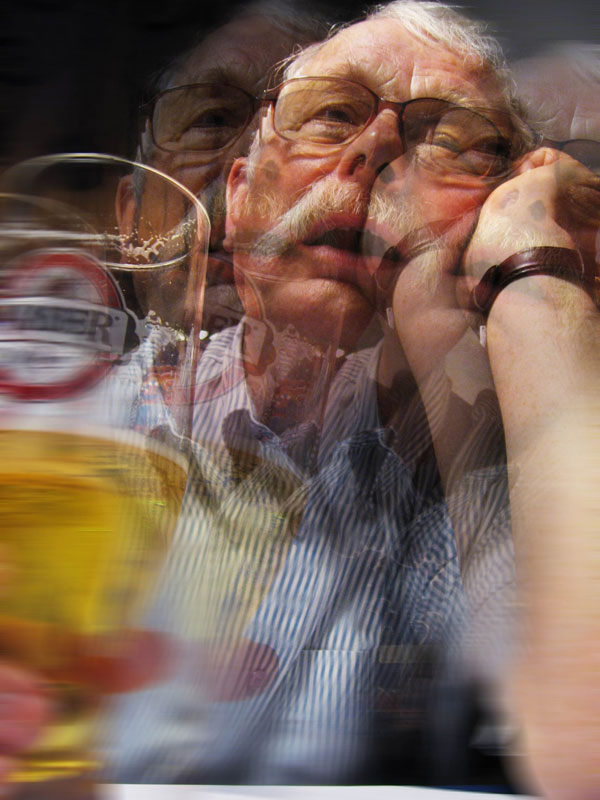Controlled Drinking: Controversial Alternative to AA

Can you fight the disease of alcohol addiction and still be a social drinker? Making such a stance was heretical only a generation ago. Yet controlled drinking, as it is called, has emerged as an accepted treatment option for those who find abstinence too daunting.
Two books published last month by the same publisher—one in favor of controlled drinking, and the other, a tribute to Alcoholics Anonymous, adamantly against it—highlight the diversity of treatment plans, if not the passion of doctors who treat addiction .
For many Americans, Alcoholics Anonymous is synonymous with alcohol addiction treatment, and for good reason. AA has helped millions of people get off the bottle. Its system of free support groups, a 12-step program, and confessional meetings over the smell of percolating coffee as members sit in a circle is part of the popular culture, giving birth to other legitimate groups such as Narcotics Anonymous and silly parodies such as Chocoholics Anonymous.
Yet AA is not for everyone. While it is one of the most effective treatment programs, succeeding about 20 percent of the time, it is one method among several, which include other kinds of support groups, psychotherapy, medication, or a combination of all of these.
The key to 100-percent success is to find the right treatment program for you, says Dr. Michael Levy, author of "Take Control of Your Drinking...And You May Not Need to Quit" (Johns Hopkins University Press, 2007). AA, Levy says, doesn't have a monopoly on treatment plans.
Moderation, an option
Levy, a treatment clinic director and a lecturer at Harvard Medical School, is exceedingly careful not to disparage AA. He in fact encourages people to check it out. But he notes that one of AA's limitations is its strict reading of its 12 steps.
Get the world’s most fascinating discoveries delivered straight to your inbox.
Some people cannot get past step one, which is admitting that one is powerless over alcohol. Levy says that's simply not true; heavy drinkers can stop drinking on their own, and his practice is proof of that.
The second step requires belief in a greater "Power," with a capital P. Six other steps mention God, with a capital G, presumably a Christian God. Levy says that AA's emphasis on spirituality and abstinence, along with the belief that one must hit rock bottom before recovery is possible, can discourage some problem drinkers from seeking help.
In his practice, Levy, a psychotherapist, tries to understand the causes of an individual's reliance on alcohol—perhaps as a social lubricant or stress reliever—and attempts to remedy the problems that lead to heavy drinking.
Moderation, a blasphemy
Moderation goes against the AA's core belief that alcoholics are in denial about being in control of their drinking. Thus, advocates for AA often rail at those who offer the wishy-washy solution of controlled drinking.
Depending on the extent of addiction, the AA's stance is true. Brain imaging studies have revealed that heavy drinkers actually have damaged the part of the brain that can help control a drinking habit, which makes the pursuit of moderation not just a matter of strong will but rather a physical impossibility.
Dr. Jack Hedblom, a psychotherapist in Maryland, is a firm believer in the AA program and attempts to demystify the organization in his book, "Last Call" (Johns Hopkins University Press, 2007). He emphasizes the importance of spiritual development, for example, but refutes the idea that the 12 steps are part of an organized religion. He sees no hope in controlled drinking for alcoholics.
Recovery, by the numbers
The 2001-2002 National Epidemiologic Survey on Alcohol and Related Conditions found abstinence and moderation to be equally effective. Among the 43,000 alcoholics surveyed, nearly 36 percent were in recovery—18.2 percent were abstainers and 17.7 percent were moderate drinkers.
What remains controversial is the definition of alcohol dependency (alcoholism) and abuse. The AA's stance, for example, is that anyone who can recover by drinking moderately was never an alcoholic in the first place.
Rather than play word games, Levy says that if you think you have a problem—be it dependency or abuse—get help. Both his book, "Take Control of Your Drinking," and "Last Call" were published nearly simultaneously, perhaps in an attempt to keep the alcoholism treatment debate lively.
- Video: Addiction in Your Genes
- Top 10 Bad Things That Are Good For You
- 10 Easy Paths to Self Destruction
Christopher Wanjek is the author of the books “Bad Medicine” and “Food At Work.” Got a question about Bad Medicine? Email Wanjek. If it’s really bad, he just might answer it in a future column. Bad Medicine appears each Tuesday on LiveScience.

Christopher Wanjek is a Live Science contributor and a health and science writer. He is the author of three science books: Spacefarers (2020), Food at Work (2005) and Bad Medicine (2003). His "Food at Work" book and project, concerning workers' health, safety and productivity, was commissioned by the U.N.'s International Labor Organization. For Live Science, Christopher covers public health, nutrition and biology, and he has written extensively for The Washington Post and Sky & Telescope among others, as well as for the NASA Goddard Space Flight Center, where he was a senior writer. Christopher holds a Master of Health degree from Harvard School of Public Health and a degree in journalism from Temple University.


